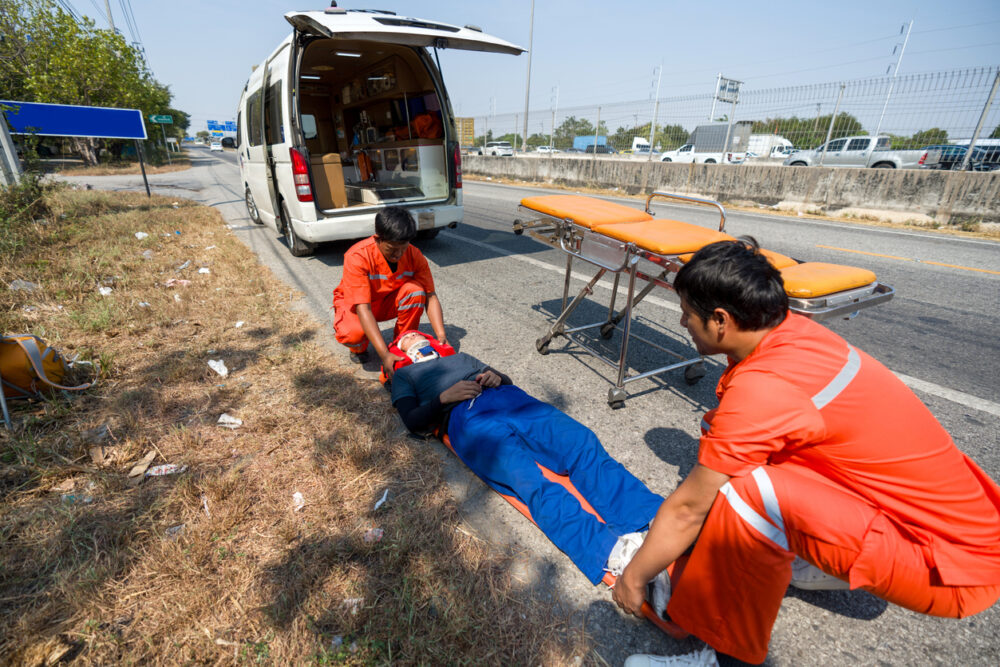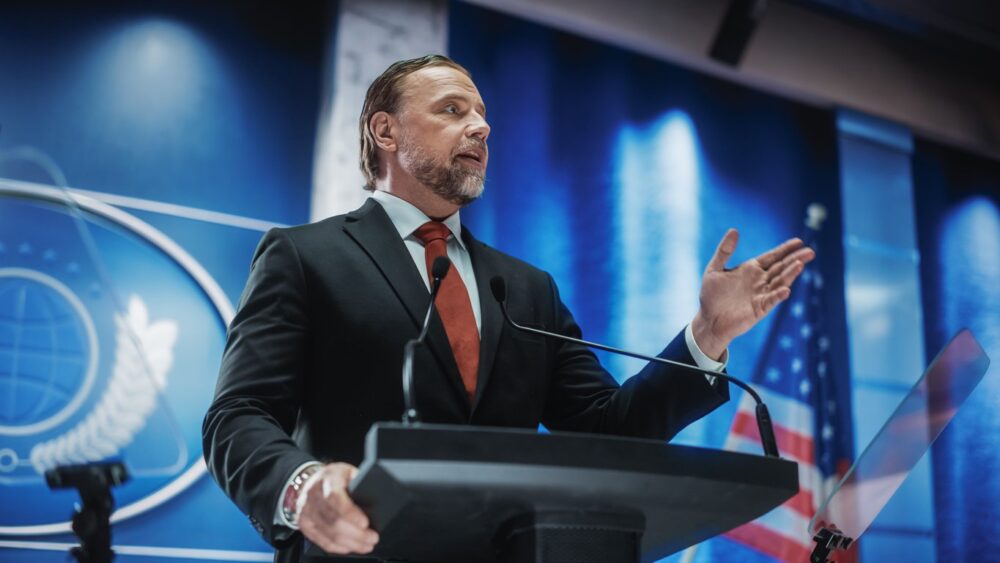When politics replaces expertise, everyday people pay the highest price.

You probably don’t realize how dangerous it is when smart people start disappearing from government jobs. It’s easy to tune out the headlines about agency shakeups or bureaucrats getting pushed out. Sounds like insider drama, right? But the truth is, when experts—scientists, economists, public health pros, climate analysts, and career civil servants—are sidelined, you end up living with the consequences. These aren’t just paper-pushers. They’re the people who know how to keep your water safe, your medication tested, your air breathable, and your food supply running smoothly. And when they’re replaced with loyalists, cronies, or people who have no business making critical decisions, things start to break. Slowly at first, and then all at once.
You might not notice it right away. Policies still get passed, press conferences still happen, and the machinery keeps turning. But underneath? The gears are grinding. And once the damage shows up in your daily life, it’s a lot harder to undo. The purge of experts isn’t just a political story. It’s a ticking time bomb hiding behind boring headlines—and when it goes off, you’ll feel it. Everywhere.
1. You stop getting the truth about things that actually affect your life.

When experts are pushed out, facts get fuzzy—and fast. You might still hear official-sounding statements, but they’re often filtered through spin, not science. The people who used to speak up when something was wrong are now being silenced or replaced, according to Professor Jane Campbell Moriarty at Jurist News. That means you’re left with half-truths, outdated info, or just flat-out lies dressed up in confident language. You can’t make informed decisions about your health, safety, or future when the facts are being bent to fit a political agenda. And by the time you realize the info was wrong, it might already be too late to fix it.
You deserve to know what’s really going on—about the air you breathe, the food you eat, the threats you face—but when experts are kicked out of the room, that pipeline of truth gets clogged with noise. Suddenly, what used to be clear becomes confusing. What used to be urgent becomes optional. And you’re left guessing what’s real. Losing experts means losing your ability to trust what you hear—and that’s a dangerous place to be.
2. You could get sick because no one’s tracking the warning signs anymore.

Public health doesn’t work on autopilot. It takes trained experts constantly watching for patterns—outbreaks, unusual symptoms, environmental shifts—to catch problems early. When those people are gone or ignored, things get missed, as reported by Christiane Gerblinger at the Australian National University. You don’t find out about the contaminated water until people are in the hospital. You don’t hear about the next virus until it’s already spreading. And once something like that takes off, cleaning up the mess costs way more—money, time, and lives. The scary part? Most of this work happens behind the scenes, so you don’t notice when it stops. There’s no headline when a disease surveillance team gets gutted or when a lab loses funding. But there is a headline when it all goes wrong.
And by then, it’s chaos. You might assume “someone’s watching this,” but if experts are being pushed out, that “someone” might not exist anymore—or might be told to look the other way. Your health shouldn’t depend on luck or politics. But without experts in the room, that’s exactly what it becomes. And that should scare you more than any bug ever could.
3. You might lose access to life-saving treatments that never get developed.

Scientific progress doesn’t just happen because people are curious—it happens because smart, specialized experts fight to fund, research, and protect the work that saves lives. From cancer treatments to new vaccines, it all starts with scientists deep in the weeds, doing slow, often thankless work. When those people get fired, defunded, or replaced with political hacks, research stalls, as stated by the authorities at the National Coalition Against Censorship. Grants dry up. Projects are shelved. And discoveries that could’ve helped you—or someone you love—don’t happen. It’s not just about the next big cure either. It’s the little improvements that add years to people’s lives. The better meds with fewer side effects. The faster diagnostic tools. The updated treatment guidelines that actually work.
All of it depends on expert input. Without that, the system starts spinning its wheels. You don’t feel it immediately. But the future gets dimmer, one lost breakthrough at a time. That “miracle” treatment you might need someday? It doesn’t show up unless someone’s fighting for it now. And if the experts are gone, there’s no one left to do the fighting.
4. Your air and water could quietly become more dangerous.

Environmental safety doesn’t take care of itself. The air stays clean and the water stays drinkable because people—scientists, analysts, and inspectors—are constantly testing, regulating, and flagging problems. When those people are shown the door or their warnings are buried, bad stuff starts slipping through the cracks. Lead levels don’t get flagged. Pollution thresholds get quietly raised. Chemical leaks get downplayed. And by the time you notice a weird smell or strange symptoms, the damage is already done. It’s not dramatic. It’s gradual. You don’t wake up one day to black water coming out of the faucet—you wake up years later with chronic issues no one can explain.
The scariest part? Once those protections are gone, industries aren’t shy about pushing limits. With no watchdogs in the room, they cut corners to save money, knowing no one’s really checking. You don’t get clean air and water just because you live in a “safe” place. You get it because someone fought to make it that way—and when the experts are gone, so is that fight.
5. Your kids’ education could turn into a politicized mess of misinformation.

Education policy might seem boring, but it shapes everything your kids learn—or don’t learn. When qualified educators and curriculum experts get pushed out of decision-making, classrooms become battlegrounds for politics instead of places for learning. Facts get watered down. Science gets disputed. History gets rewritten. And the people making those decisions often aren’t teachers or researchers—they’re ideologues with an agenda. That means your child could grow up memorizing cherry-picked facts and skipping entire chapters of real history.
They might be taught to question scientific consensus while being steered toward specific viewpoints that have nothing to do with critical thinking. Experts in education aren’t just there to be know-it-alls—they’re there to make sure your kid leaves school prepared for the real world, not someone’s preferred version of it. And once that expert input is gone, the door opens wide for biased, oversimplified, or outright false information to take its place. If you think it’s just about textbooks, think again. It’s about whether your kid grows up informed—or indoctrinated. And that depends on who’s allowed to shape the curriculum.
6. You could end up working in a job market shaped by fantasy, not facts.

When economic experts and labor analysts are sidelined, policies get made in a vacuum—often based on outdated beliefs or ideological talking points instead of actual data. That means decisions about job training, wages, automation, education funding, and labor protections are crafted without a clear understanding of what workers really need. The result? A job market full of mismatched skills, false promises, and widening inequality. You could go into debt for a degree the government swore was a safe bet—only to find there’s no demand.
Or work in an industry with no protections while politicians insist the “free market” will sort it out. The truth is, you can’t build a stable economy without people who know how economies actually work. When experts get replaced with people chasing political points, the safety nets disappear, the gaps widen, and regular folks are left picking up the pieces. If your career, paycheck, or retirement plan is tied to a system built on guesswork, you’re not just underpaid—you’re being played. And that’s exactly what happens when real experts are pushed aside.
7. You’re more likely to face disaster without anyone prepared to respond properly.

Emergency management works best when experienced professionals are in charge. These are the folks who know how to coordinate across agencies, plan for worst-case scenarios, and respond with precision when things go sideways. But when those people are pushed out in favor of political appointees or unqualified loyalists, disaster response turns chaotic—fast. Suddenly, hurricanes get ignored until it’s too late. Wildfires aren’t contained properly. Relief supplies are delayed or mismanaged. And you’re the one left waiting, scrambling, and wondering why help isn’t coming. It’s not about bad luck—it’s about bad leadership. You don’t see the years of experience and planning that go into keeping a crisis from spiraling. But you do feel it when that knowledge is replaced with someone winging it.
Real emergency response isn’t reactive—it’s proactive, strategic, and built on expert coordination. When you gut those teams, you might save money upfront, but you pay for it in lives, property, and long-term recovery. Disasters are scary enough. Facing them without real experts in the room? That’s a nightmare you can’t afford.
8. You’ll have fewer protections when corporations cut corners.

Regulators aren’t just rule-makers—they’re the guardrails that keep corporations from putting profits ahead of people. When experts in safety, labor rights, environmental standards, and consumer protections are pushed out, guess who benefits? It’s not you. It’s the companies suddenly free to bend rules, ignore warnings, and speed through approvals. Think less inspection of the food you eat, fewer checks on the products you bring into your home, and weaker oversight of the industries you rely on every day.
Maybe your medication is rushed to market. Maybe your apartment gets built with substandard materials. Maybe your workplace becomes more dangerous because no one’s enforcing the law anymore. These things don’t happen in headlines—they happen in your body, your wallet, your community. When expert regulators are silenced or replaced, it’s not “deregulation”—it’s permission to cut corners. And those corners come out of your safety, not the CEO’s bonus. If you want someone fighting for your rights behind closed doors, they need to be trained, informed, and independent. Otherwise, you’re left hoping greed doesn’t win. Spoiler: it usually does.
9. You’ll have fewer legal protections if the justice system loses its experts.

Law and policy are complicated—and they don’t interpret themselves. Legal experts help ensure that rules are applied fairly, consistently, and based on precedent, not pressure. But when qualified professionals are purged and replaced with people chosen for loyalty over knowledge, the legal system becomes unpredictable. That could mean housing protections quietly disappear. Workplace discrimination cases get thrown out. Environmental laws aren’t enforced. Or new legislation is written so vaguely or sloppily that it becomes meaningless—or worse, weaponized. The justice system isn’t supposed to be a free-for-all. It’s supposed to rely on deep expertise in how laws work and how they’re implemented. Without that, regular people get crushed by loopholes, delays, or sheer confusion.
Suddenly, your rights are harder to defend, your options narrower, and your ability to fight back is buried in bureaucracy. Law without expertise is just power—and that’s exactly what happens when experts are sidelined. If you think you’ll never need the system to protect you, think again. When you do, you’ll want someone smart enough—and brave enough—to do it properly.
10. You won’t know who to trust when crises hit and misinformation spreads.

In a high-stakes situation—like a pandemic, natural disaster, or foreign conflict—people need clear, credible guidance. That usually comes from experts who’ve spent years studying the risks and planning how to respond. But when those voices are drowned out, muzzled, or replaced with people pushing political talking points, the result is confusion, distrust, and dangerous decisions. You get mixed messages. You get leaders contradicting each other. You get social media filling the vacuum with half-baked theories. And suddenly, no one knows what to believe.
That kind of chaos isn’t just inconvenient—it’s life-threatening. When you can’t tell what’s true, you can’t act responsibly. And when everyone’s acting on different “truths,” the system breaks down. Public trust is one of the most important tools in any crisis, but it only works if people believe the experts are independent and honest. Take that away, and you’re left with noise. A world where the loudest voice wins, not the most informed. And in that world, you don’t get clarity. You get confusion. Which, in a crisis, is the most dangerous thing of all.
11. You’ll feel the consequences of bad policies long before politicians do.

When expert advisors are removed from the equation, the policies that get passed often sound good on paper—but completely fall apart in practice. Why? Because there’s no one with the knowledge, data, or courage to point out the flaws before it’s too late. The lawmakers and appointees pushing these ideas don’t usually have to live with the fallout. You do. You’re the one navigating the mess when a healthcare plan crumbles or a tax cut blows a hole in local services. You’re the one left stranded when infrastructure fails or a deregulated industry tanks the economy.
Experts are often the only ones in the room willing to say, “This won’t work—and here’s why.” Without them, policy becomes guesswork. Trial and error, but with real people’s lives. And when things go sideways, there’s rarely a do-over. You’re stuck with the ripple effects—higher costs, worse services, more risk—while those responsible pivot to the next talking point. The next time someone says experts don’t matter, ask them who’s going to fix the policy disaster headed straight for your life.
12. You become easier to manipulate when no one’s around to check the facts.

Experts aren’t perfect, but they are usually the ones who slow things down, demand evidence, and say, “Actually, that’s not how this works.” When they’re removed, it clears the way for narratives, not knowledge. That makes you easier to sway. Easier to scare. Easier to rally behind decisions that aren’t in your best interest. It might sound dramatic, but this is how control works—not by brute force, but by bending the truth and getting people to believe it. Without experts to call out lies, challenge flawed data, or hold leaders accountable, you’re left with whoever shouts the loudest. And those voices don’t always have your well-being in mind.
Suddenly, entire policies are sold to you on vibes and slogans instead of facts and evidence. That’s not governance—that’s manipulation. Experts provide friction. They slow the spin, challenge the narrative, and force leaders to prove what they say. When that’s gone, you’re just a target for influence, not a participant in democracy. And the scariest part? You often don’t realize it’s happening—until it’s already worked.
